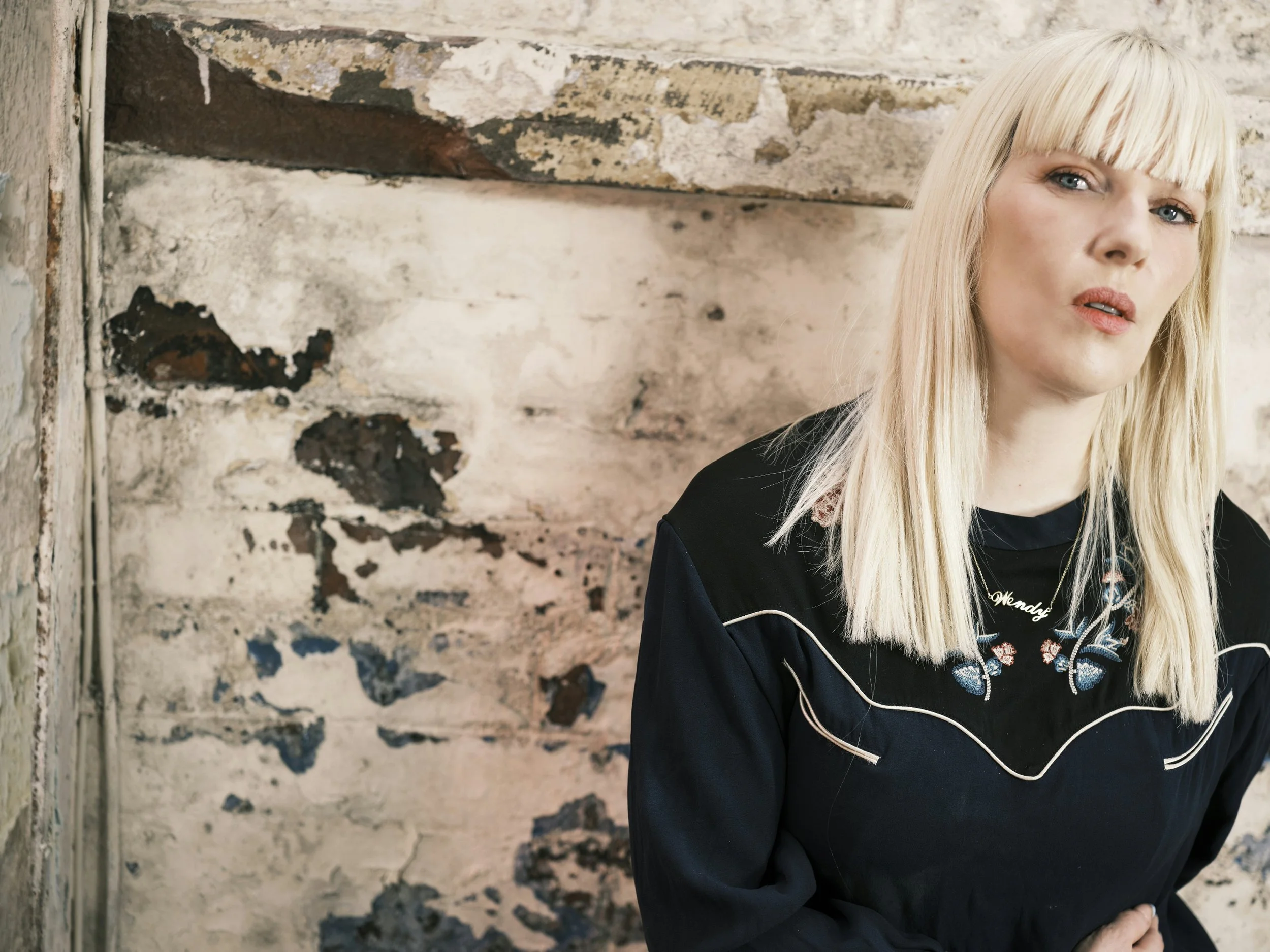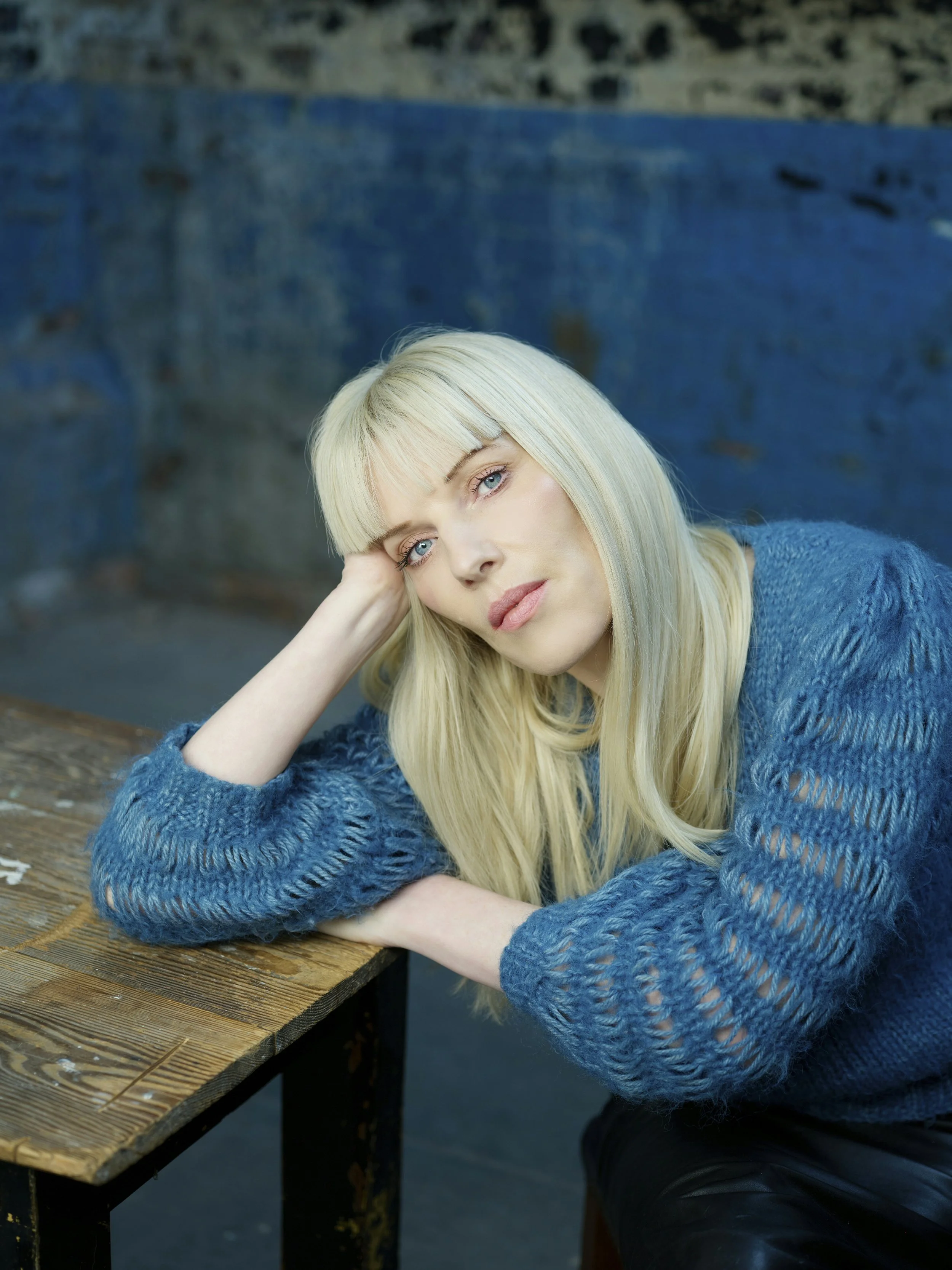Wendy Erskine

Wendy Erskine is a Northern Irish author and teacher. She has published two short story collections and a novel.
Wendy has been shortlisted for the Republic of Consciousness Prize and twice for the Edge Hill Short Story Prize and longlisted for the Sunday Times Short Story Award and the Gordon Burn Prize. She has won the Butler Prize for Literature and the Edge Hill Readers' Choice Award.
She is a Fellow of the Royal Society of Literature and a former Seamus Heaney Centre Fellow at Queen's University Belfast.
Kiosk had the pleasure of interviewing her about her writing process, new novel The Benefactors and how it felt to watch her short story come to life in film.
You have said that for your short story collections you write 6ooo words every six weeks or so. Did you use a similar approach when writing The Benefactors?
Well, the way I normally write the short stories is that I start with an initial first draft of about 15,000 to 20,000 words – about double or triple what I eventually need. It’s great fun, that first draft, because it is writing quickly and without any restrictions whatsoever. I don’t know where it’s going and who the character are who might get involved. In a way, I don’t really know what I’m writing about. What happens after that draft is done is that I review it really coolly and carefully and think, ok, what have we got here? What’s this all about? And then I start again.
With The Benefactors, I didn’t think I could work the same way. I didn’t want to write about half a million words and then bring it down, so I had a bit more of an idea of the structure from the outset. But overall, I stuck to my general way of working which is to try to write about 1000 words a day. For me that is usually do-able. The thing is not to be too harsh on yourself: you are just trying to get it down. Don’t be too critical. You know that Five song, Keep on Moving? ‘I know it’s not much, but it’s ok.’ Well, that.
Leading on from that, how do you get over the blank page and the flashing cursor? Where do you start?
The thing to remember is that where you start on the blank page is never going to be the start of the final piece, whether it’s a short story or essay or novel or whatever. I think people have a fear about beginnings because they’ve been told – wrongly – that if you don’t have a beginning that blows readers’ minds then they won’t continue. That cheap wisdom just creates a kind of anxiety. Start wherever you want just to get yourself on the road. Further along you will be able to refine things.
Your characters in The Benefactors are all so unique and you’ve really embodied the notion that each human lives in their own individual reality, with their own personal methods of communicating with other people and their communities. Did you do a lot of research into the different age groups, social groups etc? Or are you just an excellent people watcher? It would be great to hear more about your characterisation process.
Thanks very much! It is important to me that the characters should feel like people. One of the key things is not to use these people as ciphers for ideas or vehicles for particular plot points or whatever. People, myself included obviously, are so strange and complicated, particularly the ones who say ‘with me what you see is what your get.’ I immediately think, hmmmmm. So in terms of characterisation, I’m always aware of complexities and contradictions, the contrast between interiority and how people present themselves to the world. I don’t really do a lot of research, beyond checking with people the specifics of particular jobs or the currency of particular words. Like say, dickwad isn’t a word that I would necessarily have used, but my son suggested it and it worked. And you are right, the thing is that I am a total people watcher. Absolutely. I’m just always paying attention to what people are saying, wearing, acting. My daughter filmed me unawares in Tim Horton’s for about 10 minutes, and I am just looking at everyone who’s coming past, taking it all in.
My kids used to always tell me off for staring at people. But it’s never judgy. I’m just interested.
The Benefactors allows the reader to form independent thoughts and opinions on what actually transpired. Was it your intention to give the reader that level of freedom of interpretation?
Yeah, I mean, I find it really irritating as a reader when a writer doesn’t trust the reader: you know, over explanation of character, heavy-handed symbolism, obvious sign-posting. By the same token, I am always thrilled when I realise that I am picking up on things, subtle things, that a writer is doing and that they have trusted me as a reader to do that. But every creative choice has risks. And so there are always going to be people who want it presented to them on a plate. The Benefactors deals in part with a sexual assault and so they will want a clear, objective account of that and then might want to see everyone involved punished accordingly. So they will be frustrated with this book. I can live with that.
The stories were all so interesting and the characters all so real, the Benefactors could have easily continued for another couple of hundred pages. How did you decide it was finished?
That’s a lovely thing to hear. Thank you! It’s one of the real bizarre things that we buy into, when we read, that characters’ existence kind of starts on the first page and end on the last page. And yet there is so much that we don’t know about that has gone before. What was Boogie from the book like when he was six? What was Nan D like as a little kid? Or Bronagh? The same thing is true of endings. All endings are artificial because life of course goes on, as it were, beyond the denouement. I decided it was finished, because I had got to the point where there was a new beginning for the character, Misty. But I take what you say as a great compliment. And if readers project what might happen for the characters, beyond the final line of the book, then that’s brilliant. I have my own ideas, but yours will be just as valid.
Your work is incredible, and it’s one mesmerising story after another. Have you ever had a light bulb moment and thought of a brilliant addition to a story after it’s finished and published?
It’s funny: it hasn’t ever really happened quite like that! I’ve never thought about a brilliant addition to a story, but I have thought about how I could have better expressed an idea, or how a piece of dialogue could be more realistic. I have read all of my books for the audio version and reading aloud has often thrown things like that up. But I think that’s always the way. You could be tinkering at things for the rest of your life. And I would have to say that, doing the audiobook, there were times when I was really moved. When I was reading the story Mathematics from Dance Move, I was starting to cry. I was thinking, please don’t let Niall the sound engineer notice that I am getting emotional. What a self-centred writer, getting moved by her own writing. What a dickwad!
Moving on from The Benefactors, your short story Nostalgie from Dance Move has been made into a short film by Kathryn Ferguson and Stacey Gregg. What a perfect trio to depict the story of an aging male popstar. How did that project come about?
Well, now and then I get contacted by people who want to do things with my writing. That’s brilliant. But quite a lot of the time plans don’t ever become a reality because of all sorts of factors. Kathryn, Stacey and I had a meeting one time at House of Zen and I really liked them. Kathryn had read the collection and had particularly thought the story Nostalgie would make a good film. She managed to get all kinds of wonderful people on board like Stacey and Robbie Ryan and Aidan Gillen.
When watching your words come to life through the eyes of the director and screenwriter, did it come out how it looked in your mind’s eye?
I slipped into the Dockers Club to watch the big bar scene being filmed. Honestly it was one of the most surreal episodes ever in my life, watching something that I had invented at my kitchen table taking physical form in front of me. I mean, it was even better than I had imagined. Aidan Gillen was absolutely wonderful.
When will the short film be available for viewing?
I think it is being shown in the autumn.



